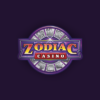The surge in global iGaming popularity is undeniable, with exponential growth observed over the past few years, propelled by unforeseen global events and rapid technological advancements.
The gaming industry is witnessing a boom, with new providers and operators continuously entering the scene. This sector offers immense opportunities for growth and expansion, making it an enticing venture for entrepreneurs.
Location plays a pivotal role in the success of an online gaming business. While iGaming operates online, the choice of the corporate entity’s registration location is critical, as it determines the regulatory landscape and compliance requirements.
Initial Steps for Launching an iGaming Startup
When embarking on the journey of launching an iGaming startup, several crucial steps must be considered for success:
- Market Selection: Entrepreneurs must choose between mature or emerging markets, considering factors such as innovations like live dealers, NFTs, and cryptocurrency that influence the gaming landscape.
- Regulatory Research: Thorough research into regulations within the target location is essential, as regulations and restrictions vary significantly from country to country.
- Demographic Analysis: Conducting detailed demographic research helps understand the target audience’s characteristics, including age, gender, preferred payment methods, and gambling preferences.
- Competitor Analysis: Analyzing competitors’ strengths and weaknesses, game selection, bet configurations, payment systems, and player acquisition strategies provides valuable insights for positioning the startup in the market.
- Cost Considerations: Opening an online casino entails various expenses, including website development, licensing, casino software, staff recruitment, and marketing. Additional costs may arise in countries requiring on-site server setup, necessitating recruiting more personnel and launching a local office.
- Time and Resources: Building an online casino requires not only financial resources but also time. Obtaining licenses can take several weeks to months, adding to the overall timeline and investment required.
- Choosing the Right Location: Selecting a country for the iGaming startup involves considering numerous factors, making it a complex decision laden with various details and intricacies.

Exploring Promising iGaming Startup Locations
While choosing a business location may seem straightforward in theory, it involves navigating a myriad of factors. Below are select countries offering favorable environments for emerging iGaming startups:
[Note: Fees mentioned in this article were last updated in November 2023.]
Antigua and Barbuda
Nestled in the Caribbean, Antigua and Barbuda boast a robust regulatory framework for online gaming, established as early as 1994. The Antigua Gaming Authority oversees licensing and oversight, with fees set at $75,000 for sports betting sites and $100,000 for online casinos, along with an annual renewal fee of $5,000. Corporate tax stands at 3%, and a gaming license application incurs a $15,000 fee. Notably, a server installation requirement exists for licensees on the island.
Alderney
Positioned as a self-governing British Crown dependency in the English Channel, Alderney has been a prominent regulator of online gaming since 2000. Renowned for its regulatory standards, the Alderney Gambling Control Commission issues licenses and conducts audits within the sector. The Alderney gambling license costs around £17,500, with renewal fees contingent on revenue.
Belize
Situated in Central America, Belize shares borders with Mexico and Guatemala. The Belizean government extends a comprehensive gambling license to operators, software providers, and service firms in the industry, facilitating various gaming activities like casinos and lotteries. Known for its adaptable gaming license accommodating diverse online gambling activities, Belize offers tax incentives tailored to specific business models. The Gaming Control Board regulates gaming activities, with an annual license fee of $10,000 plus $5,500 in additional fees, and a renewal fee of $10,000.
Canada (Kahnawake)
In Canada, companies licensed by the Malta Gaming Authority can operate online casinos and sports betting platforms without additional costs. Canadian residents can acquire a gaming license from the Kahnawake Gaming Commission, operated by an experienced indigenous tribe in online gambling. Benefits of obtaining a Kahnawake license include zero-tax policy on gross gaming revenue, no additional gaming tax, and swift setup. The application fee is $35,000, with an annual renewal fee of $5,000.
Cyprus
Cyprus is a popular gambling jurisdiction that issues licenses, although gambling within the country’s borders is typically challenging and often illegal. However, Cyprus permits the licensing and operation of online casinos targeting a global audience, provided they are not accessible to the local population. Prospective operators undergo standard background checks and must be approved by the Cyprus regulatory authority. License fees amount to €30,000 for a one-year license or €45,000 for a two-year license, along with a 13% tax on all revenue. Operators must maintain a Cyprus-based bank account for facilitating bets, with the account handling payouts domiciled in Cyprus.
Comoros (Anjouan)
Comoros, situated in the Indian Ocean, has been granting offshore gaming licenses since 2005. Known for its streamlined and hassle-free licensing process, Comoros allows establishments with multiple brands and website domain names to operate under a single license umbrella. The application process involves registration with Anjouan Corporate Services, the entity responsible for license issuance. The gaming license fee is approximately €17,500, and offshore gaming businesses are exempt from taxes.
Costa Rica
Costa Rica, in Central America, adopts an unconventional approach to online gaming licenses, lacking specific regulations and not issuing gambling licenses. Offshore enterprises involved in gambling activities are invited to operate within the country’s borders. While the absence of regulatory oversight may deter some businesses, it also allows them to operate independently. With no licensing fees or corporate taxation, businesses can select pre-incorporated shelf companies or establish new companies for online gaming operations.

Curaçao
Curaçao, located in the Dutch Antilles, offers a favorable environment for launching online casinos with a modest 2% corporate tax and complete exemption from taxation on betting activities. The application process typically takes about six weeks, with an application fee of €4,000. There is an additional yearly license fee of approximately €12,000, with a 2% tax on net income. Many entrepreneurs opt for Curaçao to avoid the high licensing fees imposed by other jurisdictions like Antigua and Barbuda.
Germany
Germany has become an attractive market for the iGaming industry, boasting a population exceeding 82 million and serving as a hub for various sectors. Formerly one of Europe’s largest grey markets for online gambling, Germany underwent significant changes in recent years regarding its stance on online casino businesses.
Annual licensing fees are contingent on projected annual turnover, ranging from a minimum of 0.1% of revenues to a maximum of €71,000, supplemented by a 5.3% revenue tax for companies exceeding €100 million in turnover. Operators must also furnish a security deposit of up to €25 million. Additionally, online casino games are subject to VAT.
Gibraltar
Gibraltar has established itself as a key player in the iGaming industry, with over 10% of the island’s workforce employed in online gambling. Acquiring a license from the local jurisdiction is relatively straightforward, with no application fee. However, companies must demonstrate robust security measures from reputable providers, and principal shareholders or board members must possess impeccable moral records.
Gibraltar offers favorable taxation policies, with a modest 1% tax on profits for companies registered in the jurisdiction, capped at around half a million pounds. The fee for various licenses, including Remote Gaming B2C Operator and Remote Betting B2C Operator, is approximately £100,000 for five years.
Isle of Man
For those eyeing the UK’s expansive online gambling market, the Isle of Man provides an excellent option. Three types of licenses are available for online gaming: a network services license, a full license, or a sublicense, tailored to the company’s objectives and requirements.
The Isle of Man offers a favorable tax regime, with no corporate tax levied. However, gambling companies are subject to a modest 1-1.5% tax rate on income, depending on their level of success. License fees range from £5,250 for a sublicense to £52,500 for a network services license or token-based software license.
Malta
Positioned in the Mediterranean, Malta serves as the gateway for your new online casino to penetrate the European market. Benefiting from European Union membership and access to European players, Malta offers relatively modest startup expenses, albeit varying based on the chosen license.
The application fee for a Malta license is €25,000, with both application and renewal fees set at €5,000. The corporate tax rate stands at 35%, and the licensing process, though thorough, can span several months, demanding a substantial investment for higher-tier licenses.
Panama
Panama exercises stringent regulations across most gambling dimensions, including online gambling, where operators can obtain local licenses for diverse betting options. However, certain products, such as lottery games and political election wagering, are prohibited, subject to regulatory discretion.
Acquiring a license in Panama entails an initial cost of approximately $40,000, with an annual renewal fee of $20,000. Operators are also subject to a 10% corporate tax on Gross Gaming Revenue, and the application fee amounts to $1000.

Sweden
Sweden emerges as an appealing gambling hub, hosting several online gaming giants. Despite higher taxes and fees compared to offshore alternatives, Sweden boasts a reputable regulatory framework and robust telecommunications infrastructure. Notably, the Swedish government refrains from taxing players’ winnings, while casinos face an 18% tax on revenue.
Regulated by the Swedish Gambling Authority, obtaining a license in Sweden requires fees of around 400,000 SEK (€39,000), with a yearly renewal fee of approximately 300,000 SEK. The corporate tax rate stands at 22%.
United Kingdom
The United Kingdom stands as a major player in the global gambling arena, boasting a thriving betting culture and exemplary regulatory oversight by the UK Gambling Commission. Despite higher tax rates and licensing fees, establishing a presence in the UK offers substantial advantages.
Initial application costs around £5,700, with varying annual fees, while the corporate tax rate is 21%. Launching your venture in the UK facilitates access to support services, simplifies staff recruitment, and fosters entry into business networks alongside fellow entrepreneurs.
FAQ
How much does it cost to start a casino business?
The initial investment required to start a casino business can vary significantly based on the jurisdiction and regulatory framework. For instance, jurisdictions like Belize and Comoros may entail lower initial licensing fees, ranging from €10,000 to €17,500 respectively. Conversely, in more established gaming jurisdictions like Malta and Sweden, initial application fees and annual renewal fees can be higher, ranging from €25,000 to €39,000. Additionally, factors such as taxes, security deposits, and ongoing compliance expenses further contribute to the total investment needed to establish and operate a casino business.
What countries are the easiest to get a gambling license?
Curaçao and Costa Rica are widely regarded as some of the easiest countries to obtain a gambling license due to their simplified processes and minimal regulatory requirements. Curaçao offers operators a straightforward licensing procedure with relatively low initial costs, while Costa Rica allows businesses to operate without a formal gambling license, albeit still subject to local regulations. Additionally, jurisdictions like Alderney and Kahnawake provide efficient licensing processes and favorable regulatory environments, making them attractive options for online gambling operators seeking a streamlined approach to licensing.
What country is best known for its online casinos?
Malta is renowned as one of the premier destinations for online casinos. It boasts a favorable regulatory environment, access to the European market, and a well-established licensing framework overseen by the Malta Gaming Authority (MGA). With its high regulatory standards, strategic location, and access to European players, Malta has become a preferred choice for numerous online casino operators, solidifying its reputation as a leading country for online casinos.





















